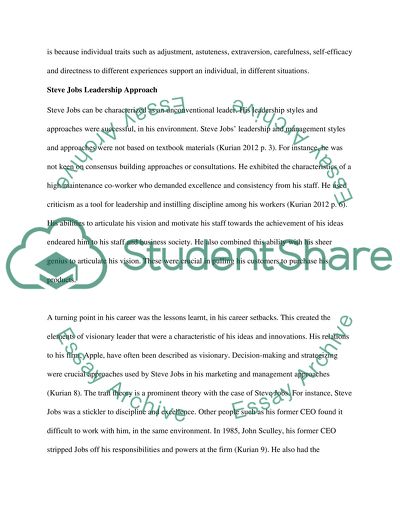Cite this document
(Steve Jobs Leadership Approach Coursework Example | Topics and Well Written Essays - 1750 words, n.d.)
Steve Jobs Leadership Approach Coursework Example | Topics and Well Written Essays - 1750 words. Retrieved from https://studentshare.org/human-resources/1478402-leadership-steve-jobs
Steve Jobs Leadership Approach Coursework Example | Topics and Well Written Essays - 1750 words. Retrieved from https://studentshare.org/human-resources/1478402-leadership-steve-jobs
(Steve Jobs Leadership Approach Coursework Example | Topics and Well Written Essays - 1750 Words)
Steve Jobs Leadership Approach Coursework Example | Topics and Well Written Essays - 1750 Words. https://studentshare.org/human-resources/1478402-leadership-steve-jobs.
Steve Jobs Leadership Approach Coursework Example | Topics and Well Written Essays - 1750 Words. https://studentshare.org/human-resources/1478402-leadership-steve-jobs.
“Steve Jobs Leadership Approach Coursework Example | Topics and Well Written Essays - 1750 Words”, n.d. https://studentshare.org/human-resources/1478402-leadership-steve-jobs.


